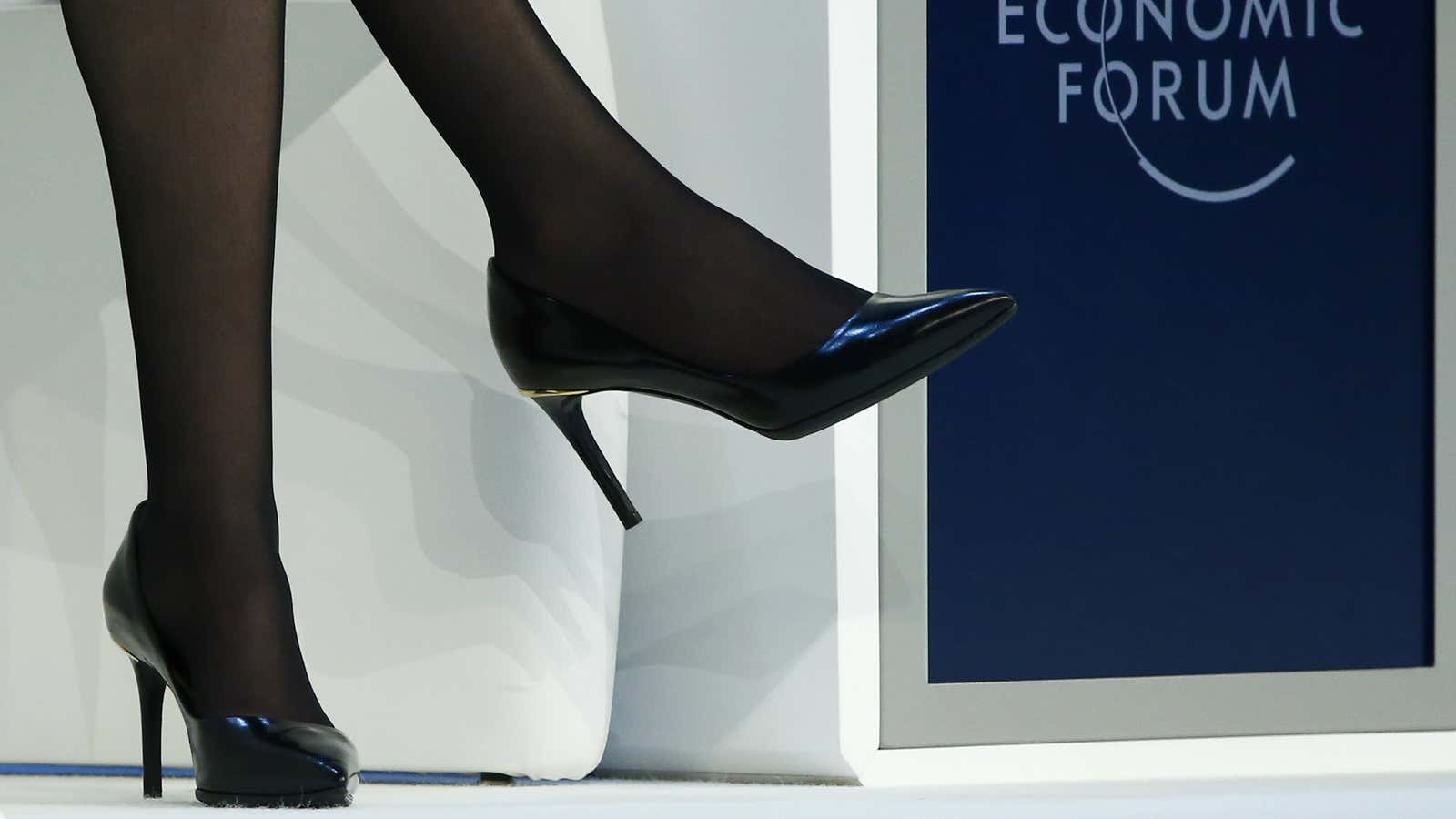Davos, Switzerland
Ten big-shot men took up the fight to reach gender parity in Davos today.
Top executives from Barclays, McKinsey, Twitter, and Unilever, among others, released the inaugural HeForShe Parity Report (pdf), a product of a UN Women initiative that aims to mobilize men and boys in the fight for gender equality.
At a press conference in a museum the snowy village of Davos, UN Women Goodwill Ambassador Emma Watson asked an all-male panel why they cared about gender parity. Their answer: companies need women to make better decisions and more money.
“It’s not the moral requirement, it’s the economic opportunity,” said Dominic Barton, global managing director at McKinsey & Co.
“Teams that are diverse statistically make better decisions,” said Dennis Nally, CEO of PwC added.
McKinsey has calculated that getting to parity would add $28 trillion to the global economy.
“Today is about transparency, sharing the information we have, and using the data to mobilize other companies to do the same,” said Phumzile Mlambo-Ngcuka, executive director of UN Women.
Each of the 10 companies disclosed four key data points: the share of women in their companies, the percentage of women in senior leadership roles, board representation, and what percentage of new hires are women.
Here are some of the numbers:
- Tupperware wins the award for the highest percentage of women at 59%; number two was Barclays with 51%.
- AccorHotels and Tupperware have achieved parity on board representation; on average, 28.6% of the group’s board members are women.
- 61% of Tupperware’s new hires were women last year; PwC was 48%.
- Only 13% of Twitter’s senior leadership are women.
Here are the other senior leadership figures:
By disclosing the data and committing to the goal of parity, the companies hope to speed up what has been a glacial process to move the needle on gender parity. According to the report, women constitute 40% of the overall global workforce of the 10 companies, 27% of senior leadership roles and 29% of board seats.
Sebastien Bazin, chair and CEO of AccorHotels, stole the show for two bold approaches he is making to closing the gender gap. By 2020 he will pay women and men the same amount for the same work. “I am trying to find a single reason that two individuals having the same work don’t have the same compensation,” he said. Since he can’t, he’s committed to changing it. “If you accept it should be done that way, go for it.”
Bazin has also created a shadow executive committee with 25- to 34-years-olds, split evenly between men and women from around the world. Those board members will get 100% of the information the regular executive committee gets, and will be asked to respond to each point of every agenda item before every monthly meeting. “They know where the world is going,” he told Quartz.
Adam Bain, COO of Twitter, heralded a few recent developments at Twitter. All employees around the globe will get 20 weeks paid parental leave, and the company has set up a global shipping deal to help mothers who are breast-feeding and traveling to get their breast milk home.
A few of the CEOs said that releasing the data has another desired effect: ratcheting up the competition.
“We are competitive,” said Jean-Pascal Tricoire, chair and CEO of Schneider Electric. “We want to be the best.”
